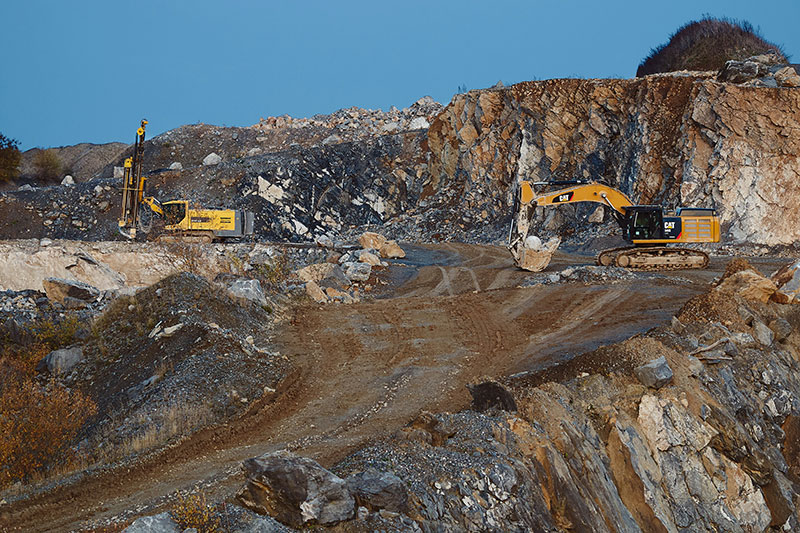Amendment to the Mining Business Regulation –Incentives for People from All Walks of Life
At A Glance
The Government of Indonesia issued Government Regulation (“GR”) No. 25 of 2024 (the “New GR”) in May 2024. It is not a completely new regulation but rather an amendment to GR No. 96 Year 2021 on the Implementation of Mineral and Coal Mining Business Activities. Here are the key points:
- religious community organizations that want to enter into the mining business – are given the priority right to manage certain mining concessions;
- existing mining players that want to get the “life of mine” license by expanding into refinery business – are provided with the flexibility to structure their refinery business; and
- holders of mining contract of work – are given the change to extend their mining business period.
Prioritization for Community Welfare.
In the interest of improving community welfare, the New GR offers priority right for the Special Mining Business Licenses Areas (WIUPK) to religious community organizations.
The New GR sets the various limitations over this privilege, among other things:
- it can only be applied to certain mining areas that were used to be subject to coal contract of work (“CCOW”);
- the religious organization needs to be the controller and holder of the majority shares of the mining company;
- the mining company is prohibited from cooperating with the previous holder of the CCOW or its affiliates; and
- the priority right is only offered within five years from 30 May 2024.
This new provision seems to be contrary to the law, which requires relinquished areas to be auctioned to state-owned enterprises (SOEs) and regional-owned enterprises (ROEs) first. Critics argue that these new rules could undermine the legal framework established by the Mineral and Coal Mining Law.
What does it mean to be have an “integrated” processing and/or refining facility
Before the New GR takes effect, a holder of IUP OP may be given a successive ten-year IUP/special IUP extension only if it also carries out processing and/or refining activities by itself. This means that the IUP OP cannot get the “life of mine” license extension even though its subsidiary or its affiliate runs the processing and/or refining facilities.
The New GR now widens the criteria. Any IUP OP holder who does not have the processing and/or refining facilities can still apply for the “life of mine” license so long as it has a subsidiary who carries out the processing and/or refinery activities. The IUP holder needs to own, directly or indirect, at least 30% of the refinery subsidiary.
Interestingly, while the relevant clause on this seem to be straightforward, its elucidation may create confusion in interpreting it. In addition to the 30% ownership requirement in the refinery subsidiary, the elucidation adds one other element i.e. similarity (kesamaan) of the ultimate beneficiary owner (“UBO”) of the IUP OP holder and the refinery subsidiary. It is not clear if the IUP OP holder and the refinery subsidiary need to have the same UBO(s) or a mere similarity (not necessarily the same) UBO(s) would be sufficient.
While this new feature may make it easier for the holder of IUP OP to partner with other investors by establishing a refinery subsidiary and still maintaining eligibility for “life of mine” license, it needs to get legal clarity on the above matter.
Extension with several conditions
Any former holder of the Contract of Work (“COW”) who now holds a special IUP OP (“IUPK OP”) can be granted a successive ten-year IUP/special IUP extension if it complies with certain criteria, among other things:
- owning a domestic processing and/or refining facilities;
- owning sufficient reserves to supply its processing and/or refining facilities;
- its shares are owned by at least 51% of Indonesian parties; and
- has entered into a new share sale and purchase agreement (“Share SPA”) for at least undiluted 10% of its share ownership to a state-owned company (“BUMN”).
For a publicly-listed company, it is still not clear whether the shares owned by the public will be deemed to be owned by Indonesian parties. Further clarification needs to be obtained on (i) whether the new shares SPA requirement is still applicable if the mining company is already owned by a BUMN; (ii) what does it mean to have a new Shares SPA and how it will impact the commercial attractiveness of the mining company.
The New GR aims to enhance investment certainty in the mining sub-sector and support the national downstream program. Given the recent enactment of the New GR, it is crucial to monitor its implementation and observe its practical effects.
By: Desi Dwitiasrini & Riandi Apriliansyah

